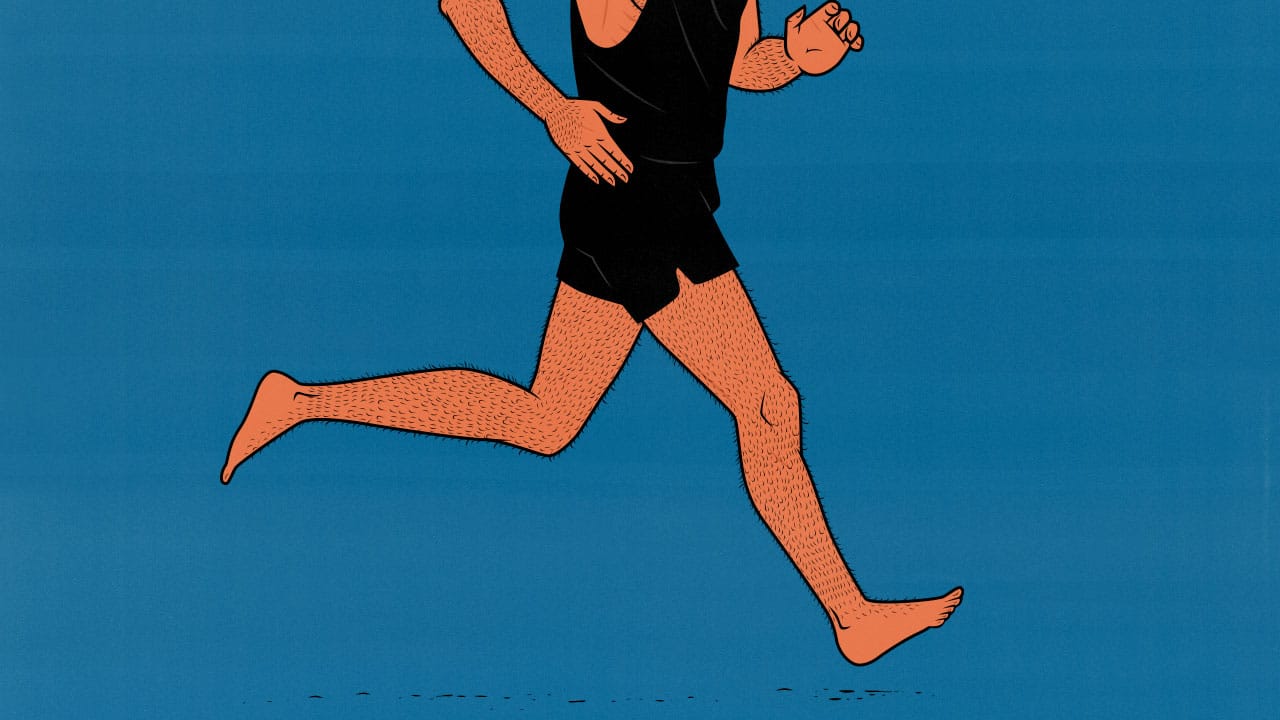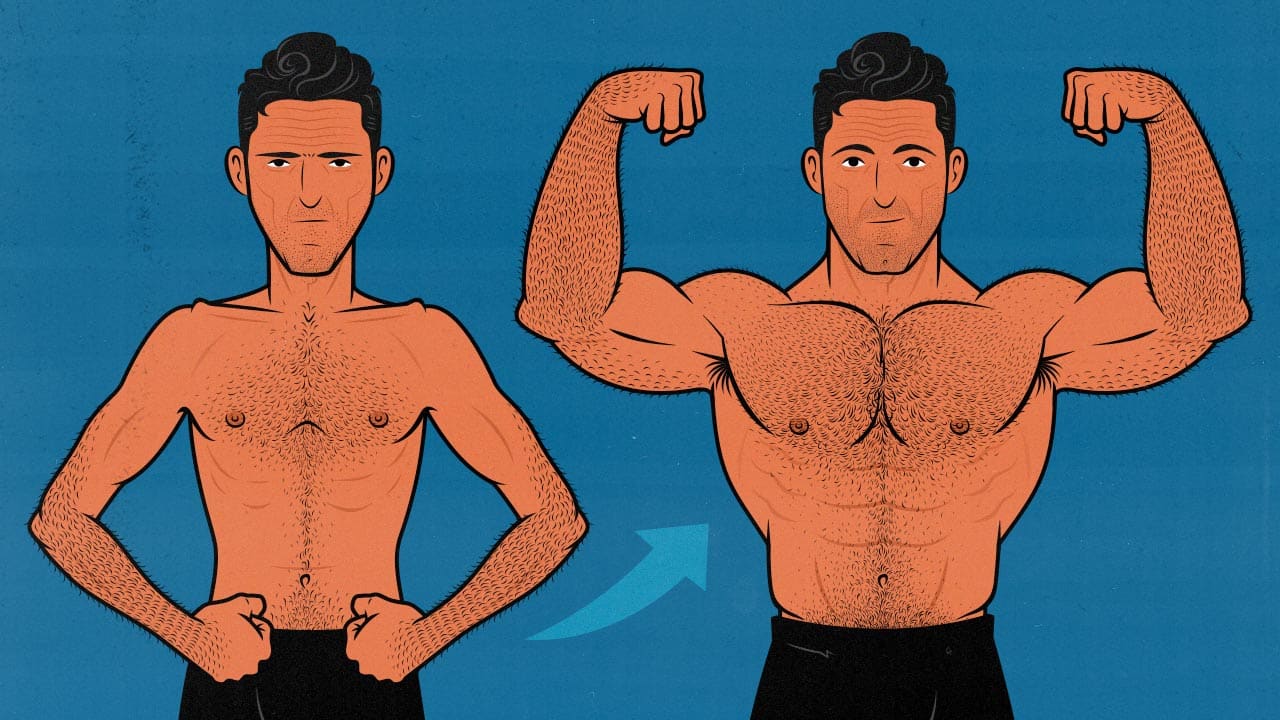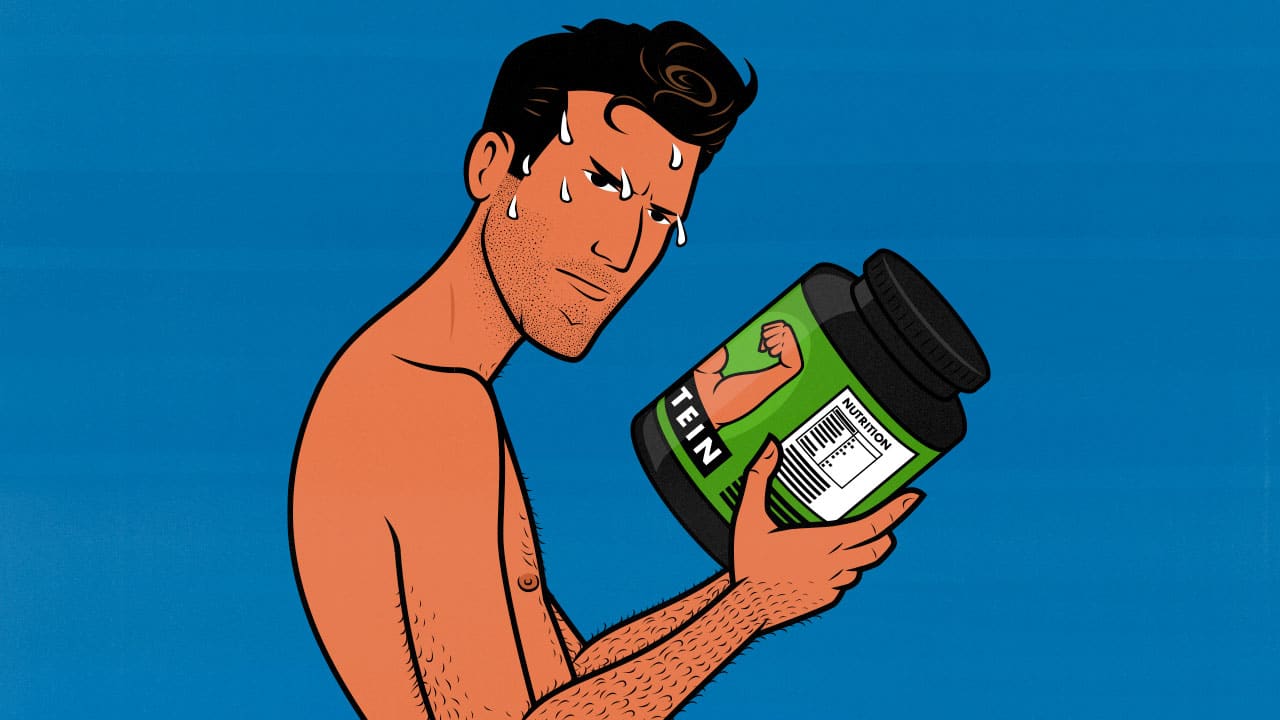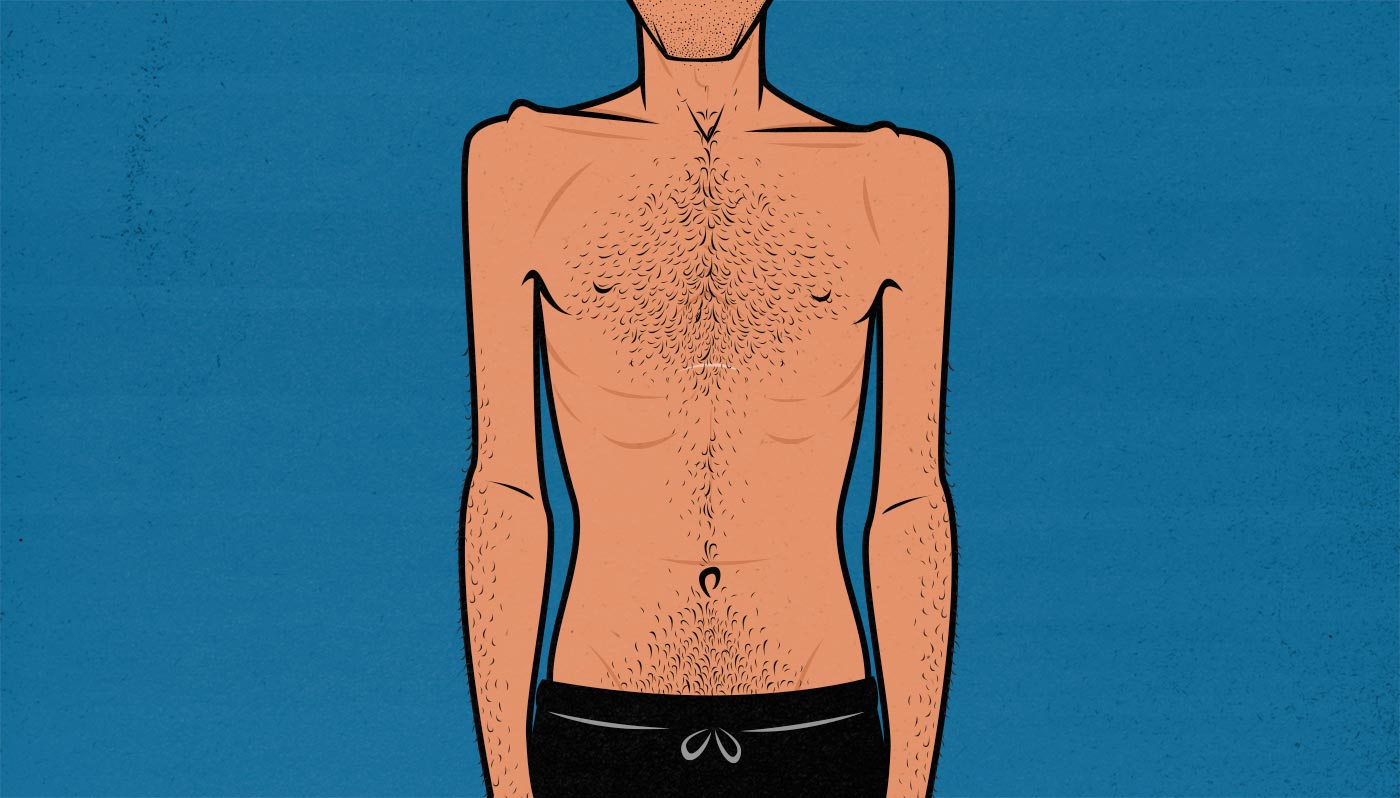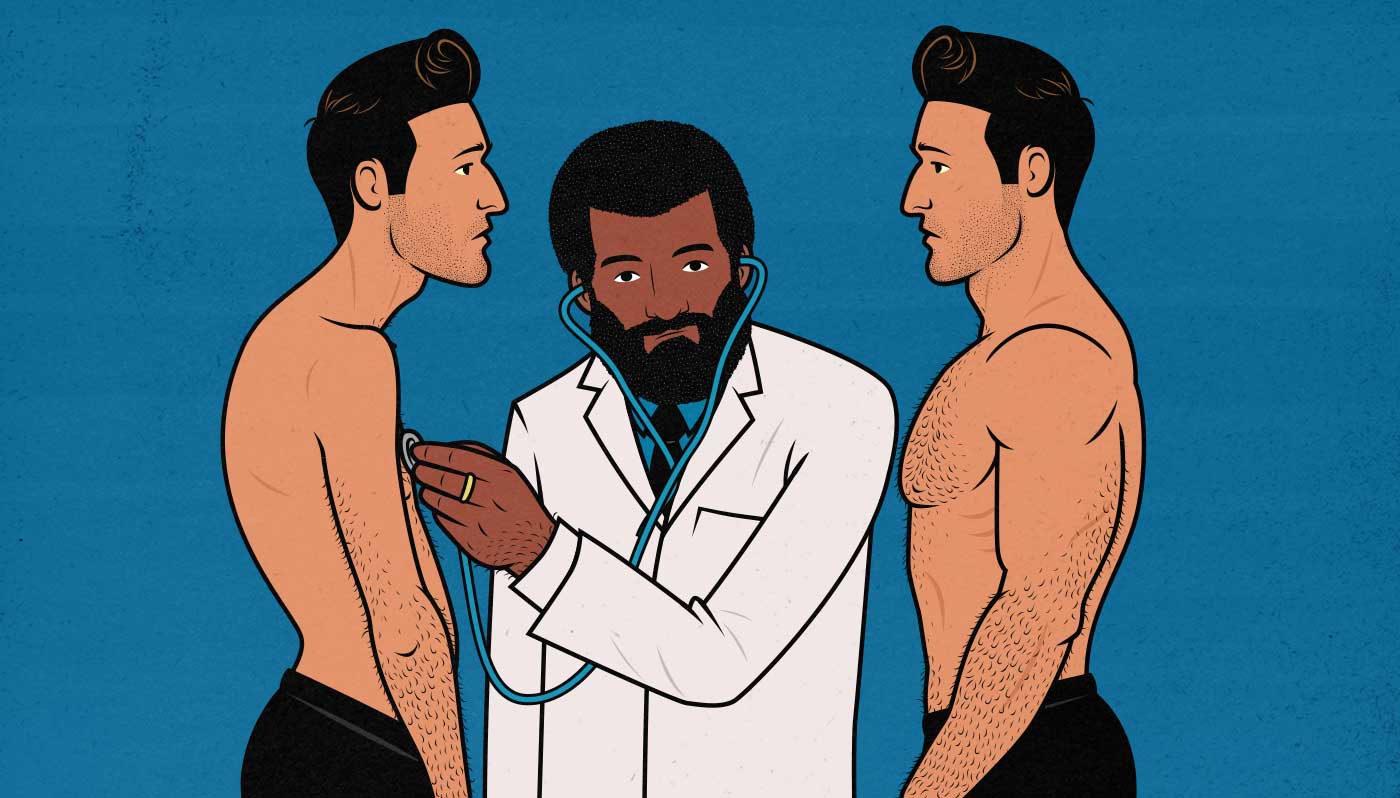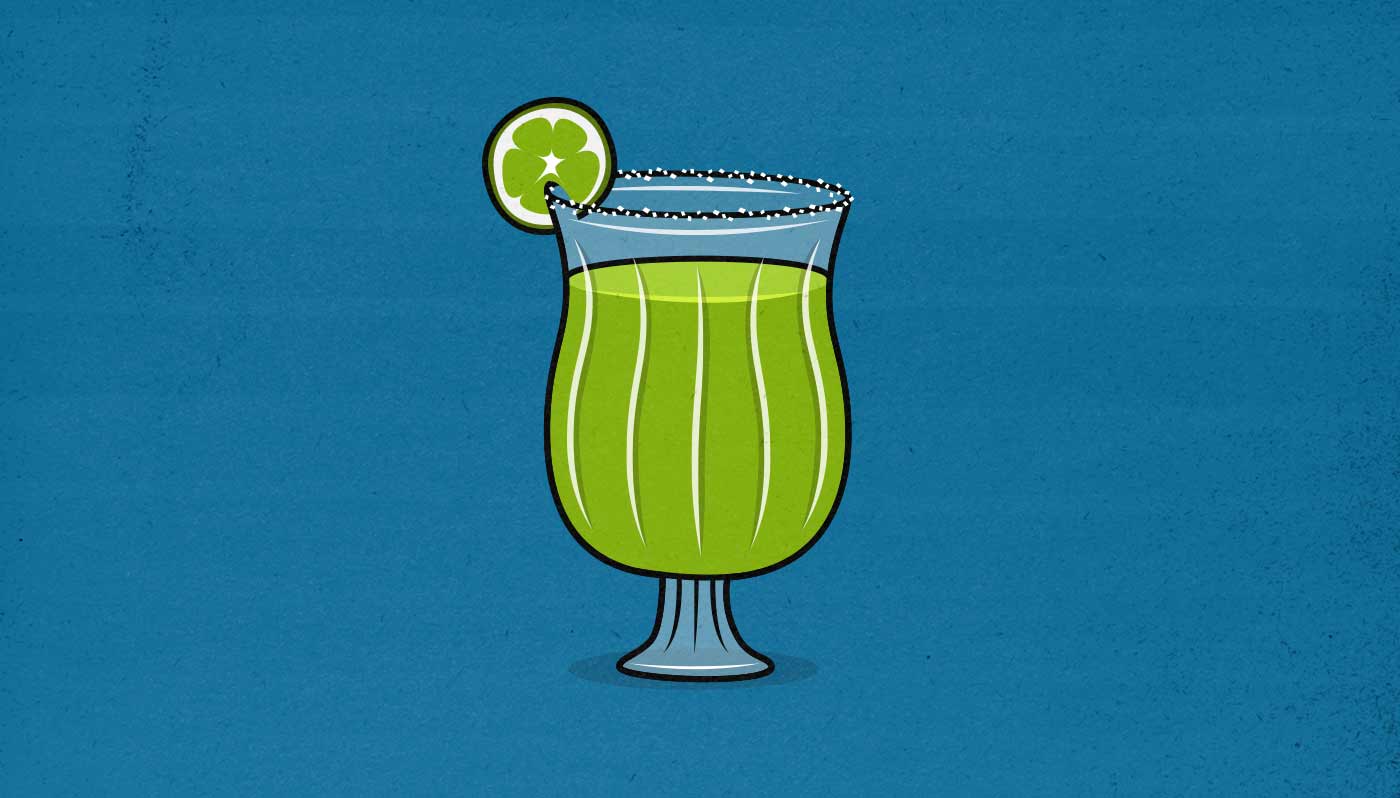Longterm Health
Does Blending Fruits Affect Their Fibre, Nutrients, or Sugar?
I’ve been asked a few times whether it’s healthy to blend fruits into smoothies. Usually, the concern is that blending breaks down the cellular structure of the fruit, releasing more sugar into your bloodstream and spiking your blood sugar. The opposite is true. I’ll explain that in a second.
Another concern is that blending fruits destroys the fibre or nutrients. Blending doesn’t usually destroy anything, and sometimes it releases extra nutrients, but there’s one situation to watch out for. It might be bad to blend bananas with blueberries, kind of.
Read MoreShould You Do Cardio While Bulking? Yes, Sort Of
Hypertrophy training is designed to stimulate muscle growth. You adapt by growing bigger, stronger muscles, but it won’t improve your cardiorespiratory health very much.
Cardio makes you fitter. You adapt to draw more blood into your heart, build more blood vessels, and produce more energy in your mitochondria. It’s great for you, but it won’t make you bigger or stronger.
Thus, a balanced workout routine includes both.
Here’s the problem: Doing both hypertrophy training and cardio at the same time causes us to adapt in two complementary but competing ways. You only have so much energy, only so many resources, so you can’t maximize every adaptation all at once. This is called the interference effect.
On the other hand, if cardio makes you fitter, you’ll be able to handle tougher hypertrophy training workouts. If it improves blood flow to your muscles, you’ll have improved performance and better recovery. There are muscle-building advantages to doing cardio, too.
Things get even more confusing if you’re a naturally thin “ectomorph” or “hardgainer.” The more cardio you do, the more calories you’ll burn and the more food you’ll need to eat. If you’re already struggling to eat enough to gain weight, that can be a problem.
MoreHow Age Affects Muscle Growth
We’ve helped 15,000 skinny people bulk up, ranging from 18 to 80 years old. Marco has coached college, professional, and Olympic athletes revelling in the peak of their athletic performance. He’s also coached sedentary desk workers in their 20s, 40s, 60s, and 80s.
What we’ve seen matches what we see in the research, and what the research shows is shocking. We have pictures. You’re going to love this.
Read MoreHow Much Protein Powder Can You Have Per Day?
One of the most common questions we get is how much protein powder is too much protein powder? One scoop of whey per day is probably fine, right? But what about 2 scoops? 3 scoops? 4?
I’ve seen dozens of muscle-building studies where the researchers give participants upwards of 60 or even 90 grams of protein per day for several months in a row, measuring what effects it has on muscle growth.
There are other studies looking directly at how much protein powder you can safely have per day.
Read MoreDoes Cardio Kill Muscle Gains?
Cardio can kill muscle gains. We’ve known this for many decades. It’s common knowledge among lifters and shows up in studies. Most recently, a study found that cardio cut muscle growth in half. We’ll go over the nuance of that study in a moment.
That isn’t normal, though. Most people who combine weight training with cardio build muscle just fine. The latest meta-analysis found that cardio didn’t interfere with muscle growth at all (meta). In fact, I’ve noticed the opposite.
If you’re clever, you can use cardio to build more muscle. We’ll go over some interesting research. It’s something I’ve seen with clients, too. The guys who get the best results are often the ones who get fit while they’re bulking up.
Read MoreAre Pre-Workout Supplements Good for Building Muscle?
We’ve seen some heated discussions about ingredients and dosages founds in pre-workout supplements. Does this particular brand have at least six grams of citrulline malate? Is it the correct ratio of citrulline to malate? Is there theanine alongside the caffeine to blunt the jitters? Are they using proprietary blends to hide subpar dosing? Unless you’re super into supplement research, it can be hard to parse.
But the more important question is, will taking a pre-workout supplement actually help you build muscle? Instead of diving right into min-maxing the ingredients and dosages, maybe we should take a step back and see if pre-workout supplements even work.
Read MoreHow to Know if You’re Skinny
How can you know if you’re skinny? There are a couple different ways. One definition for skinny is being underweight, so we can calculate your BMI. Another definition for skinny is having small muscles and lanky limbs, so we can look at your body-part measurements to see if you have smaller muscles than the average man.
That gives us two tests:
- Are you underweight?
- Are your muscles smaller than the average man’s?
In either case, we can then help you bulk up so that you’ve got a healthy bodyweight and muscles that look strong because they are strong.
Read MoreIs Bulking Healthy? Can We Make it Healthier?
Different people bulk in different ways, and so depending on how we approach it, it can be either good or bad for our general health. However, as a general rule, bulking involves habitual weight training, eating a lot of whole food, eating plenty of protein, getting an abundance of good sleep, and gaining muscle mass, all of which are incredibly healthy.
One of the main reasons that Marco and I are so passionate about helping skinny guys bulk up is because we’re so confident that it can profoundly improve your health, as it did for the two of us.
Still, there are some things to watch out for, as well as some things we can do to make bulking even healthier, so let’s go into more detail about how we can bulk up in a way that’s good for our general health.
Read MoreHow to Avoid Getting Sick While Bulking
Most of us know that working out, eating a good diet, and getting plenty of good sleep will improve our health. So why, then, whenever we start working out, do we keep getting sick. Isn’t working out supposed to make us healthier? Is getting sick every time we try to bulk up just an unavoidable part of our skinny curse?
Nothing can ruin the momentum of a good bulk like getting a cold, the flu, or—every skinny guy’s worst nightmare—the stomach flu. I can’t tell you many dozens of pounds I’ve lost to the stomach flu over the years. Getting sick while leading a sedentary life is bad enough, but it feels all the worse when we’re in the middle of a bulking routine. We lie there in fear, breathing through our mouths, certain that our muscles are being eaten away, but unable to muster the willpower to shovel down enough food to maintain our body weight.
Our bulks eventually resume, those pounds come back, and regaining muscle is a total breeze compared to gaining it in the first place. But still, better to never get sick in the first place.
Nothing will guarantee that we won’t get sick, but there are a few things we can do to reduce our risk.
Read MoreHow Much Alcohol is Okay While Bulking?
Maybe you’ve heard that beer builds beer bellies, that alcohol can tank our testosterone production, or that drinking too much can impair muscle growth.
All of this is true. In fact, it gets worse. Alcohol can also disrupt our sleep, which can further reduce muscle growth, cause extra fat gain, and harm our workout performance.
Worse still, alcohol can slow digestion, making it harder for us to digest big bulking diets. It can also negatively impact our appetites, making it harder to gain weight.
However, these aren’t the effects of drinking, these are the drinking too much. As with most good things in life, it’s the dose that makes the poison.
Maybe you’ve even heard that having a drink or two per day is better than having none. Is that true?
Read More

